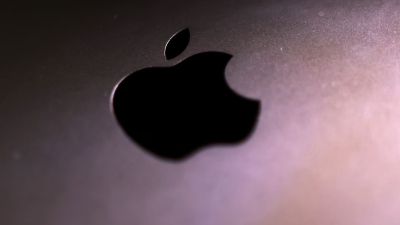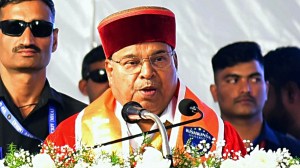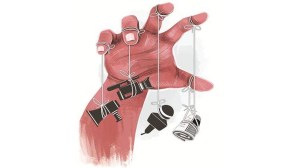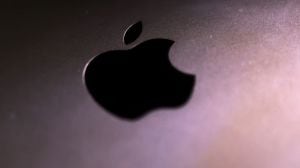Keeping faith
While some are still busy debating whether the actual day and date of the arrival of the new millennium or passing of the old one was Janu...

While some are still busy debating whether the actual day and date of the arrival of the new millennium or passing of the old one was January 1, 2000 or 2001, there are those who are not even aware that such a debate has been on. They are still recuperating from their excursions to the best spot on earth from where they caught the first sunrays on January 1. Tour operators are said to have made fortunes selling places and Goa is believed to have been one of the global hot spots. The advertisers and the media in tandem have done their own bit, though mostly for the rich and the famous.
There are those who were neither busy with the debate nor indeed with making ar-rangements to bathe in the first rays of the new millennium sun. They are purely occupied with normal chores of life. Their obsession is rather with how to make both ends meet. January 1, 2000, for them was absolutely the same as December 31, 1999. In a way they have no problems at all, for there were no preparations to be made, neither to welcomethe new millennium nor to say goodbye to the old one.
In all the hype of Y2K; people wishing each other not just a happy new year, new century or indeed a new millennium; a very large chunk of humanity with little economic, social, academic and political power, is almost forgotten. That they form nearly 85 per cent of the human community is another matter. This sea of humanity knows not who to pose its questions to; some of which sound absurd while others, awkward and uncomfortable, only good to be brushed aside.
How is the new century or the millennium going to be different from the last one as far as their lives are concerned? Will the sun shine more brightly this year? Will the rose in the garden smell better? Will the flavour of mango in the new millennium be different? Will their faith be stronger?If those are academic questions, there is a set of practical questions too.
Will the children of the poor have a stomachful to eat in the new millennium? Will women be more empowered? Will child labourand abuse be reduced? Will government officers and politicians stop asking for bribes to perform what is only their duty? Will there be a stop to dowry deaths? Will the humiliations that millions suffer every day because they were born into a certain caste cease? Will politicians behave any differently? The string of questions can be as long as the century or the millennium itself. And yet everyone gazes at the horizon, hoping for better days ahead.
There is one, however, who, se-nt by God, brought hope to this wo-rld and claimed that he came to establish God8217;s Kingdom through his message of love and forgiveness. He was born exactly 2,000 years ago and set in motion the counting of millennia. He had no riches or family name behind him to boast of. And yet, none who walked the earth has influenced human civilisation as much as he did. He had something to say and do for everyone, but more especially for the oppressed. He made it clear that his mission was, quot;to bring good news to the poor, to proclaim releaseto the poor, recovery of sight to the blind, and to proclaim the Year of the Lord8217;s favourquot; Luke 4: 18.
Jesus8217;s mission and message announced exactly two millennia ago and which have stood the test of time, persist to be as relevant today as they were then. People continue to be gripped by Him. Mother Teresa, following Jesus, was one of the many who tried to change the abysmal situation of the suffering humanity, without consideration of caste, creed or colour. Regardless of our faith and religion, does the millennium challenge us to ch-ange ourselves so that we can contribute to the transformation of our little world?
- 01
- 02
- 03
- 04
- 05































